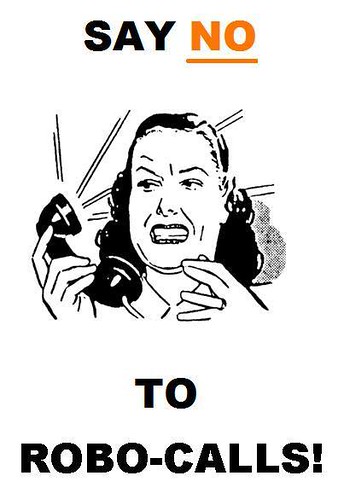In 1991, Congress enacted the Telephone Consumer Protection Act’s (“TCPA”) designed to prevent “robocalls” to consumer telephones. See 47 U.S.C. § 227(b)(1)(A)(iii). More specifically, the TCPA prohibits anyone from calling or texting someone “using any automatic telephone dialing system or an artificial or prerecorded voice” without the “prior express consent of the called party.” The TCPA has been interpreted to ban robotexting.
In 2015, Congress amended the TCPA to create a government debt collection exception to the robocall ban. The carve out allowed robocalls to collect a debt owed to OR guaranteed by the United States. This had a major adverse impact on many consumers including those owing student loans that were guaranteed by the federal government.
The carve-out was challenged by the American Association of Political Consultants (“AAPC”). The AAPC argued that the carve-out violated the First Amendment of the US Constitution in that it unconstitutionally favored government-debt collection speech over political and other speech. The AAPC argued that the entire statute was unconstitutional and asked the federal court to invalidate it. At the trial court level, the AAPC lost. The trial court agreed that carve-out for government-collection robocalls gave preference to government speech over private speech, but held that the government had a compelling interest in collecting debt that justified the different treatment.
On appeal, the Fourth Circuit disagreed with the latter part of the conclusion. The Fourth Circuit held that the government’s interest in collecting debts owed to it was NOT sufficiently compelling to allow government speech to be treated differently than private speech. However, the Fourth Circuit refused to invalidate the entire TCPA. Rather, the Fourth Circuit held that the 2015 amendment creating the carve-out was invalid. Essentially, the TCPA returned to its pre-2015 status where the anti-robocall restrictions applied to all types of robocalls including government debt collection efforts.
The US Supreme Court recently issued a fractured decision that affirmed the ruling of the Fourth Circuit. See Barr v. American Association of Political Consultants, Inc., Case No. 19-631 (July 6, 2020). The court split 6-3 on the question of whether the government debt collection carve-out was constitutional. Justices Breyer, Ginsburg and Kagan would have upheld the exception. However, all the Justices agreed that the carve-out could be severed from the TCPA.
The case is notable for many reasons including the fact that none of the Justices indicated or signalled that the TCPA itself was unconstitutional. There has been a sustained effort over the last decade to severely limit or abolish the TCPA. Those efforts have no apparent support among the Justices.
The case is also notable since the Supreme Court has accepted a related case for appeal. As we discussed here, one of the thorniest legal issues with the TCPA is what constitutes an automatic dialing machine. There is a split among the Federal Circuit courts on this issue and the Supreme Court has accepted an appeal that should resolve the question. See Facebook, Inc. v. Duguid, Case No. 19-511 (July 9, 2020). The case will be watched with interest.
If you have legal questions about consumer privacy, data security, communication technologies and internet law, contact the internet lawyers at Revision Legal at 231-714-0100.




